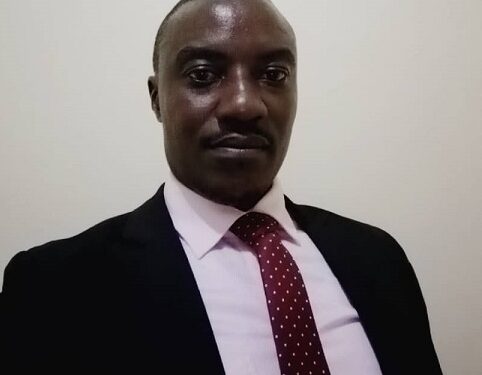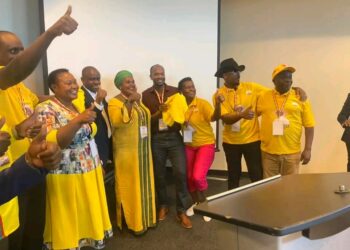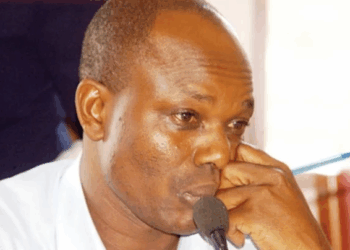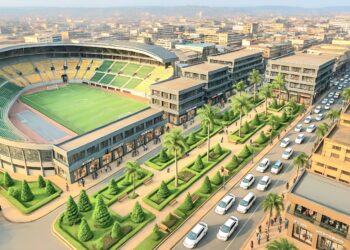When Uganda celebrates its Independence Day on October 9th, the streets are filled with patriotic fervor, songs of liberation, and speeches that hark back to the struggle for self-governance. But amidst the celebrations, a fundamental question lingers: Is Uganda truly independent in every sense of the word? The simplistic definition of independence is self-governance a nation’s ability to make its own decisions without external interference. However, as history and contemporary realities suggest, the notion of independence for many post-colonial African states, including Uganda, remains complex and, in some ways, incomplete.
Uganda, like many African countries, was subjected to decades of British colonial rule, with its political, social, and economic systems shaped to serve the interests of the empire. When the Union Jack was lowered in 1962 and the Ugandan flag raised, the symbolic moment was one of triumph for the country’s founding fathers who had fought for freedom. However, the structures left behind by the colonizers continue to influence Uganda’s governance, culture, and economy, raising questions about the true extent of this independence.
One of the most striking examples of this legacy is the continued use of English as the official language. While indigenous languages like Luganda,Lusoga, Samia, Runyankore, and others still thrive in cultural and social spaces, the language of administration, education, and law remains a colonial import. This is not just about communication but about power: the continued use of colonial languages is a reminder that the tools of governance and control were shaped by those who once ruled, and breaking away from them is not as simple as declaring independence.
Beyond language, the influence of colonialism is evident in Uganda’s education system, which remains largely modeled after the British system. Subjects are taught from a Eurocentric perspective, with little emphasis on African history, culture, or indigenous knowledge systems. For instance, herbal medicine, which was an integral part of Uganda’s health system, has been largely sidelined in favor of Western medical approaches, with little to no effort made to integrate indigenous practices into modern healthcare.
While Uganda may have achieved political independence in 1962, economic independence remains elusive. The relationship between former colonies and their colonizers, as well as newer global powers, has evolved into a more subtle yet pervasive form of control. Uganda, like many African nations, finds itself entangled in a web of economic dependency, particularly through international aid, donor funding, and loans from institutions like the International Monetary Fund (IMF) and the World Bank.
The adage, “He who pays the piper calls the tune,” rings true in Uganda’s case. International donors and financial institutions often impose conditions on the aid they provide, shaping government policies and national priorities. These conditions — frequently centered around austerity measures, privatization, and deregulation — may not always align with the country’s needs or aspirations. As a result, Uganda’s ability to exercise full sovereignty over its economic policies is constrained, raising the question of whether the country can be truly self-governing when its fiscal decisions are subject to external approval.
For instance, Uganda’s education and health sectors rely heavily on foreign aid, which often comes with strings attached. In 2014, when Uganda passed a controversial anti-homosexuality law, several Western donors cut their aid, effectively influencing the country’s domestic policy decisions. This incident underscores the fact that, while Uganda may be politically independent, its dependency on foreign aid makes it vulnerable to external pressure, particularly on social and human rights issues.
International bodies such as the IMF, World Bank, and United Nations play significant roles in shaping Uganda’s policies, often under the guise of supporting development and human rights. While these institutions provide much-needed funding and technical assistance, they also exert significant influence over domestic governance. Economic policies, infrastructure projects, and even healthcare reforms are often designed in consultation with these institutions, leaving little room for Uganda to craft policies that are tailored to its unique socio-economic context.
The IMF’s structural adjustment programs (SAPs) in the 1980s and 1990s, which aimed to stabilize Uganda’s economy, provide a stark example of this influence. While these programs succeeded in curbing inflation and promoting economic growth, they also led to severe cuts in public spending, particularly in the education and health sectors. The impact of these reforms is still felt today, as the country grapples with underfunded public services and growing inequality.
Beyond economics and governance, the influence of colonialism continues to pervade Uganda’s culture and way of life. Western culture, through media, fashion, and education, has largely eclipsed indigenous cultural practices and values. Ugandans often find themselves adopting Western modes of dress, diet, and even lifestyle aspirations, sometimes at the expense of their rich cultural heritage.
For example, traditional herbal medicine, once the backbone of health in many Ugandan communities, has been sidelined in favor of Western pharmaceutical approaches. While modern medicine has undoubtedly brought significant advancements, the disregard for indigenous knowledge systems reflects a broader trend of cultural alienation. The question of whether Uganda is culturally independent becomes even more poignant when we consider that much of the education system, legal framework, and even governance structures still mirror those of the former colonizers.
For Uganda, the path to true independence is not just a matter of cutting ties with former colonizers but of reclaiming its sovereignty in all aspects of life — political, economic, and cultural. This involves a conscious effort to realign the country’s systems with its indigenous knowledge, values, and priorities. It means reducing dependency on foreign aid, creating space for African knowledge systems in education and healthcare, and fostering a sense of cultural pride that is rooted in Uganda’s rich heritage.
As Africa’s youngest populations look forward to the future, there is a growing realization that political freedom alone is insufficient. For Uganda to celebrate its Independence Day in its true sense, it must take bold steps to redefine what it means to be truly independent in a globalized world. The challenge lies in navigating the delicate balance between engaging with the global community and retaining the autonomy to chart its own path.
Independence, then, is not a destination but a continuous journey — one that Uganda must travel with vigilance, creativity, and an unwavering commitment to self-determination.
As Uganda marks its 62nd year of independence, it is worth celebrating the strides made in political sovereignty and national unity. However, true independence remains a work in progress. It is up to this generation of leaders and citizens to reflect on the subtle forms of control that persist and take deliberate steps towards achieving genuine self-governance — not just in politics, but in economics, culture, and society at large. Only then can Uganda’s Independence Day be celebrated in its fullest sense.
denismuteguya@gmail.com
Do you have a story in your community or an opinion to share with us: Email us at editorial@watchdoguganda.com














